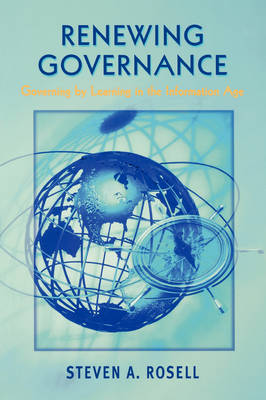The emergence of a global information society is accelerating the pace of change and overwhelming established methods of organizing and governing that were developed for a world of more limited information flows and clearer boundaries. As a result, we find ourselves in the midst of a fundamental transformation. Signs of that transformation include the radical restructuring of corporate and public bureaucracies; shifting boundaires between different sectors of society, and levels of government; a growing interest in direct participation in decision-making; and, new challenges to the legitimacy of many traditional institutions. To succeed in this more interconnected and rapidly changing world, both the public and private sectors are recognizing the urgent need to develop governance and decision-making systems that are both more distributed (in which many more people can participate) and more learning-based; decision-making systems that also can operate effectively across shifting boundaries. The ability of a society to prosper in a world of rapid change will depend, in no small measure, on its ability to develop such learning-based governance systems.
This book describes the activities and conclusions of a roundtable of senior Canadian government officials and private sector executives, who worked with researchers and leading international authorities over seven years to make sense of the implications for governance of the emergence of a global information society, and to develop more effective approaches to governing in this new context. Both in its substantitve conclusions, and in its own ongoing process of strategic dialogue and learning, the roundtable illustrated ways in which we can improve the art of governing in a world of rapid change.
- ISBN10 019541425X
- ISBN13 9780195414257
- Publish Date 13 May 1999
- Publish Status Active
- Out of Print 2 June 2008
- Publish Country CA
- Imprint Oxford University Press, Canada
- Format Paperback
- Pages 328
- Language English
